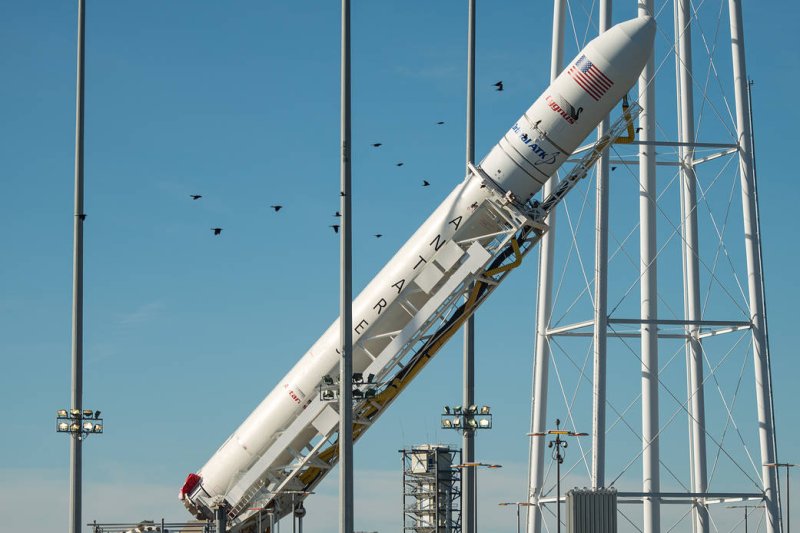1 of 2 | The Antares rocket with a Cygnus spacecraft on board is raised into the vertical position in 2016 at NASA's Wallops Flight Facility in Virginia. Photo courtesy of NASA
ORLANDO, Fla., Feb. 14 (UPI) -- Strong high-altitude winds forced Northrop Grumman to postpone a Friday cargo launch to the International Space Station from Virginia until Saturday afternoon.
"We are standing down from today's launch attempt of @NorthropGrumman's CRS-13 mission. Liftoff has been rescheduled for Saturday," NASA posted on its Twitter account.
The launch is planned for 3:21 p.m. EST.
Strong winds at high altitudes can knock a rocket off course as it ascends, and is one of the most common causes for launch postponements.
Northrop's Cygnus capsule is carrying 8,000 pounds of science experiments, crew supplies and hardware.
A previous launch attempt Sunday was scrubbed less than three minutes before planned liftoff because of "off-nominal data" from sensors on the ground, according to NASA. Northrop and NASA said ground sensors had been replaced and tested. Crews also refreshed critical science equipment on board that has a limited shelf life.
A launch Saturday would result in space station capture and docking of Cygnus on Monday, the company said.
As with all launches to the space station, the launch window is instantaneous, meaning any problems would cause a postponement to the next day or a future date.
Northrop designed the Cygnus capsule to accept trash from the space station after delivering cargo and to burn up in the atmosphere after leaving.
The capsule will carry equipment for multiple science experiments. Examples include tissue culturing, a demonstration of a new miniature scanning electron microscope and an experiment to study fires aboard spacecraft.
Because the last leg of the unmanned Cygnus is doomed anyway, NASA researcher Gary Ruff said it is "the perfect vehicle for us to do what we really want to do, which is burn larger samples. ... It goes away and nobody's on it."















